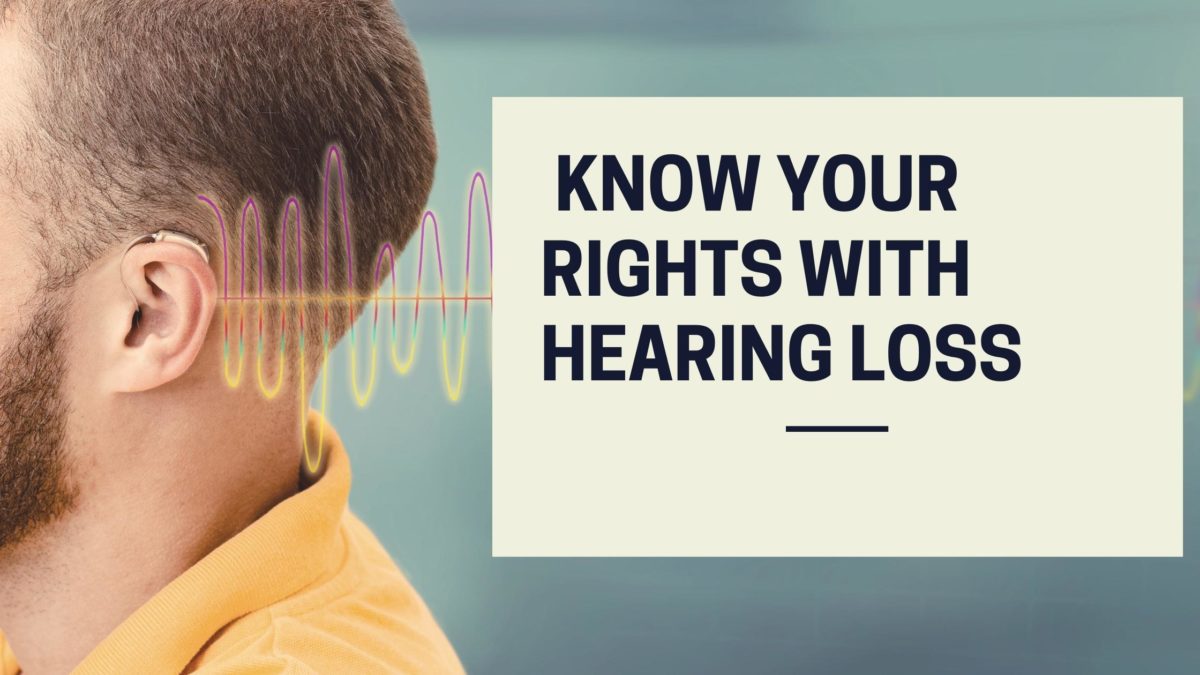
Know Your Rights with Hearing Loss
Hearing loss, when severe, is considered a disability under the American Disabilities Act (ADA) and can present challenges – particularly for those still in the workplace. The Hearing Loss Association of America (HLAA), of the 15% people in the US who self-report some degree of hearing loss — about 60 percent are either in the workplace or an educational setting. While your hearing loss may not be considered severe you are still entitled to protection at work and in public settings. Let’s explore your rights under the ADA, so you know exactly what you deserve and how to receive this.
Fair Employment (Title I)
Any employer with 15 or more employees is required to abide by non-discrimination rules. These rules include offering and providing accommodations for hearing loss which can allow you equal access to information and communication. This includes meetings, training, negotiations, and on the job at no expense to the employee.
In the case that you feel your rights as a hearing-disabled employee are being denied, the first step is to file a complaint with the Equal Employment Opportunity Commission (EEOC). It is important to do this promptly as complaints to the EEOC must be made within 6 months (180 days) of the ADA violation. It is also important to collect and document information around the infringement of these rights to protect yourself and enforce your case. The EEOC will review and may issue you a letter that gives you the right to litigate. The ADA also protects employees who file complaints so your employer cannot legally retaliate or fire you for filing a complaint.
Government Services (Title II)
This right is about accessibility. All local, state and federal government services must be made accessible to you at no charge. Accommodations must be made for effective communication, prioritizing the type of assistance you request for all with hearing impairments or deafness. This is important because it gives hearing-impaired people access to government agencies including courts, public schools, and hospitals and social services, public libraries and city-owned parks, town meetings, and local government facilities. If you find your rights to government access are being denied, you may file an ADA Title II complaint found on the ADA website.
Access to Businesses (Title III)
Title III concerns the business sector. It requires business establishments of all types to accommodate hearing loss needs. This includes safety issues, such as hearing-impaired alarms with flashing lights, closed captioning services or telecoil loops in theaters, auditoriums, and churches or written information to be posted in retail shops.
If you are interested in learning exactly what services you are entitled to by Title III there is a full list created by the National Association of the Deaf, which published their Public Accommodations memo. To file a complaint about a Title III violation, write to the U.S. Department of Justice. Find out more on the ADA website.
Telecommunication (Title IV)
This fourth section of the ADA concerns telecommunications. Telecommunication is the transmission of information by various types of technologies over the wire, radio, optical, or other electromagnetic systems and includes telephone networks, the radio broadcasting system, computer networks, and the Internet. This title requires free of charge access for hearing impaired people including access to 7-1-1 telecommunication relay services (TRS), which provides text messaging for their hearing or speech disability. Video relay services (VRS) is another free program that can be subscribed to, which provides an intermediary video interpreter who signs the conversation in real-time to the hearing-impaired party. VSR can be accessed over smartphones, video-equipped computers, and video phones.
Ongoing Advocacy
The right to disability rights is unfortunately an exhausting and ongoing fight. However, when you have the energy to do so, standing up and taking advantage of your rights can empower others to do the same and create space for more accommodations and rights in the public and private sectors for the future. Recent laws continue to expand the rights of disabled airline passengers and have made it mandatory for new telephone technology to be compatible with hearing aids and assistive listening devices. It’s important to remember that just because you have hearing loss, you don’t have to be left out of the conversation. Contact us to diagnose your hearing. Together we can find the best solution and the best accommodations for all your hearing needs.
